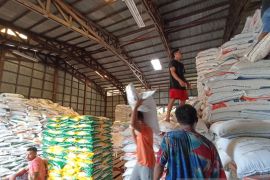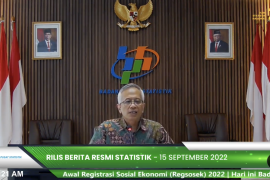"Prices will not only boost exports but also help improve the purchasing power of the people and the governments expenditure," Standard Chartered economists Aldian Taloputra said here on Monday.
The increase in the prices of commodities such as oil, gas, palm oil and coal in 2017 will contribute to exports, which in the past several years experienced negative growth, he added.
The commodity prices also have impact on raising the purchasing power of the people and driving the growth in the household consumption sector, particularly in natural resource producing regions.
"Commodity prices seemingly will continue to increase and this will help strengthen the purchasing power of people in the region or provinces which produce commodities," the Standard Chartered economist stated.
The intensive development of infrastructure, which in the short term is being supported by state revenues from the tax amnesty program, will also contribute to the economic growth.
"The government accords priority to the development of infrastructure in 2017. Moreover, the expenditure budget significantly increases. This year, the budget is relatively safe because the revenue target, even though it is high, still could be achieved," he remarked.
However, according to Taloputra, investment from the private sector is not projected to be maximal in contributing to the economic growth because there are still external challenges.
One of the things that could boost private investment performance is consistent structural reforms, so that foreign investors would not have doubts about the national economic potential in the long run.
"The economic growth should therefore be better because last year commodity prices were not high," Taloputra added.
The global report of Standard Chartered 2017 revealed various risks which could disturb Indonesias economic growth, slowed infrastructure development and unfriendly business environment.
He pointed out that the other risks that could disturb economic growth projection are external pressures such as the slowing down of the economy in China and the turmoil in the financial market, which could fuel capital flight from developing countries.(*)
Editor: Heru Purwanto
Copyright © ANTARA 2017











